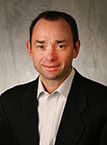
Brian Dietz Vice President, Communications & Digital Strategy National Cable & Telecommunications Association (NCTA)
When we talk about the cable industry’s impact on the Internet, we usually highlight things like building broadband networks, increasing Internet speeds, deploying Wi-Fi hotspots and making TV Everywhere a reality. But what we don’t often focus on are things that are less tangible, like how each one of use has an individual relationship with the Internet that shapes and affects its future. Some might say more esoteric ideas like this are best left to the deep thinkers and visionaries that drive technology and not the infrastructure builders like us. But we say the two are the same. As an industry, we are poised to provide leadership on both the physical construction and the philosophical meaning of an Internet connection. And we are ready to offer a vision for the potential of an informed, deeply connected, and ever shrinking global community. This is why we created Onward Internet.
Onward Internet is a unique project that we launched last year, originally designed to gather feedback from everyday Internet users about what they wanted for the future of the Internet. People shared their thoughts via an online suggestion box and physical installations in New York City, San Francisco, and Washington, DC. We took the suggestions, visualized them on the Onward Internet website, shared them widely and showcased how we all share a common vision for the future of the Internet. We all want more hotspots, faster speeds, easier access, and better teleworking. And yes, we also want mind-readers, digital unicorns, and Batman. Onward, Internet was a success in building a bridge between the wildest digital visions of everyday Internet users and the practical challenges of delivering fast broadband. Because in the end, they are similar challenges: how do we use technology to increase Internet speed, connectivity, and access.
[vsw id=”105363047″ source=”vimeo” width=”325″ height=”244″ autoplay=”no”]
Just a few weeks ago we re-launched Onward Internet with an updated vision – to broadly quantify our country’s relationship with the Internet. In partnership with Google Consumer Surveys, we launched the largest online survey in Google’s history.Over 100,000 people responded, ranking their relationship with the Internet along nine metrics plus selecting one thing they’d like most to see change about the Internet. If you take the quiz, you’ll see these aren’t questions about ISPs, TV shows, or hours spent online, these are questions about a relationship. Because each of us is in a relationship with the Internet. There are the things we love, hate, trust, and fear – things critical to where the Internet goes next. We see the role NCTA can play in the future of the Internet as more than just advocating for better technology and better devices. We’re about advocating for a better Internet—a better relationship, a better experience, and a better vision for the future.
The data we collect via Onward Internet isn’t just for us – it’s for everyone. It is an enormous pool of data that not only considers answers to the quiz, but relates that data to region, demographic, gender, and age. It offers huge insights into our ever-changing relationship with the Internet. That’s why the entire data set can be downloaded from Onward Internet for free. We hope journalists, academics, students, and other businesses can see this data, learn from it, and offer more advanced Internet technologies that reflect the real needs of American Internet users.
Onward, Internet is a tool for anyone interested in connecting our relationships with the Internet with the future of technology. We will continue to encourage people to take the quiz, share their insights, and to use the data to improve the Internet in yet unimaginable ways.
Onward, Internet!
About Brian Dietz currently serves as Vice President, Communications & Digital Strategy for the National Cable & Telecommunications Association (NCTA) based in Washington, D.C. In this capacity, Dietz directs a variety of external communications functions for NCTA including media relations and publicity for the organization and its events including The Cable Show, the organization’s diverse web and online platforms, and the association’s social media and digital engagement strategy. He also serves as the principal spokesperson for the organization. Dietz joined NCTA in January 2003.
Prior to joining NCTA, Dietz most recently served as Executive Director of Communications for AT&T Broadband in Sacramento, CA and he previously worked as Director of Communications for AT&T Broadband predecessor company, MediaOne, in Minnesota’s Twin Cities. He also has served as press secretary for then-Minnesota Governor Arne Carlson, Communications Director for the State of Minnesota’s Trade and Economic Development Agency and Public Information Officer for the Minnesota Department of Transportation.
Dietz holds a B.A. in Broadcasting from the University of North Dakota, received a graduate certificate in Public Relations from the Masters of Business Communication program at University of St. Thomas in St. Paul, MN and completed an Executive Management Program at Harvard Business School.
